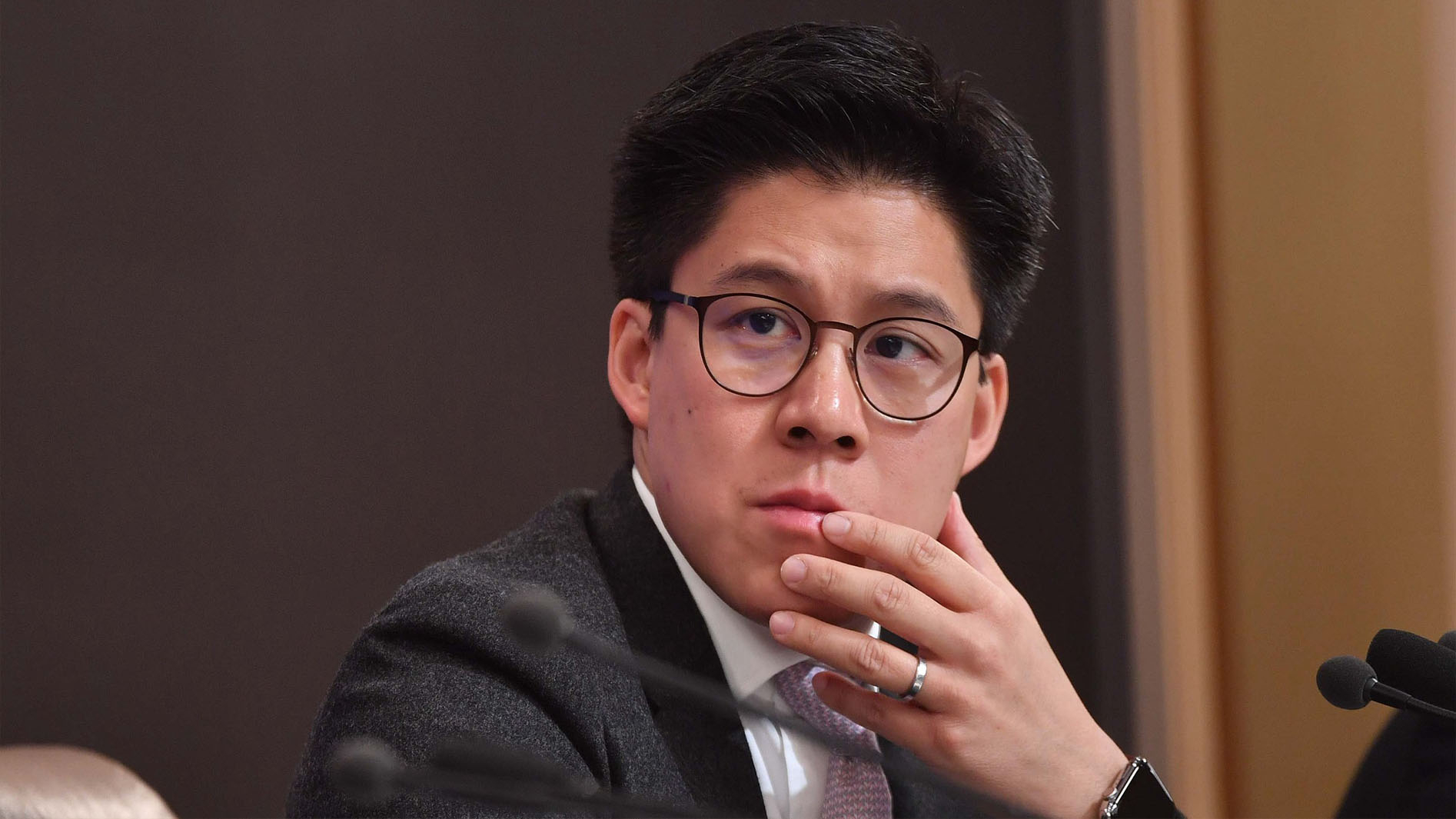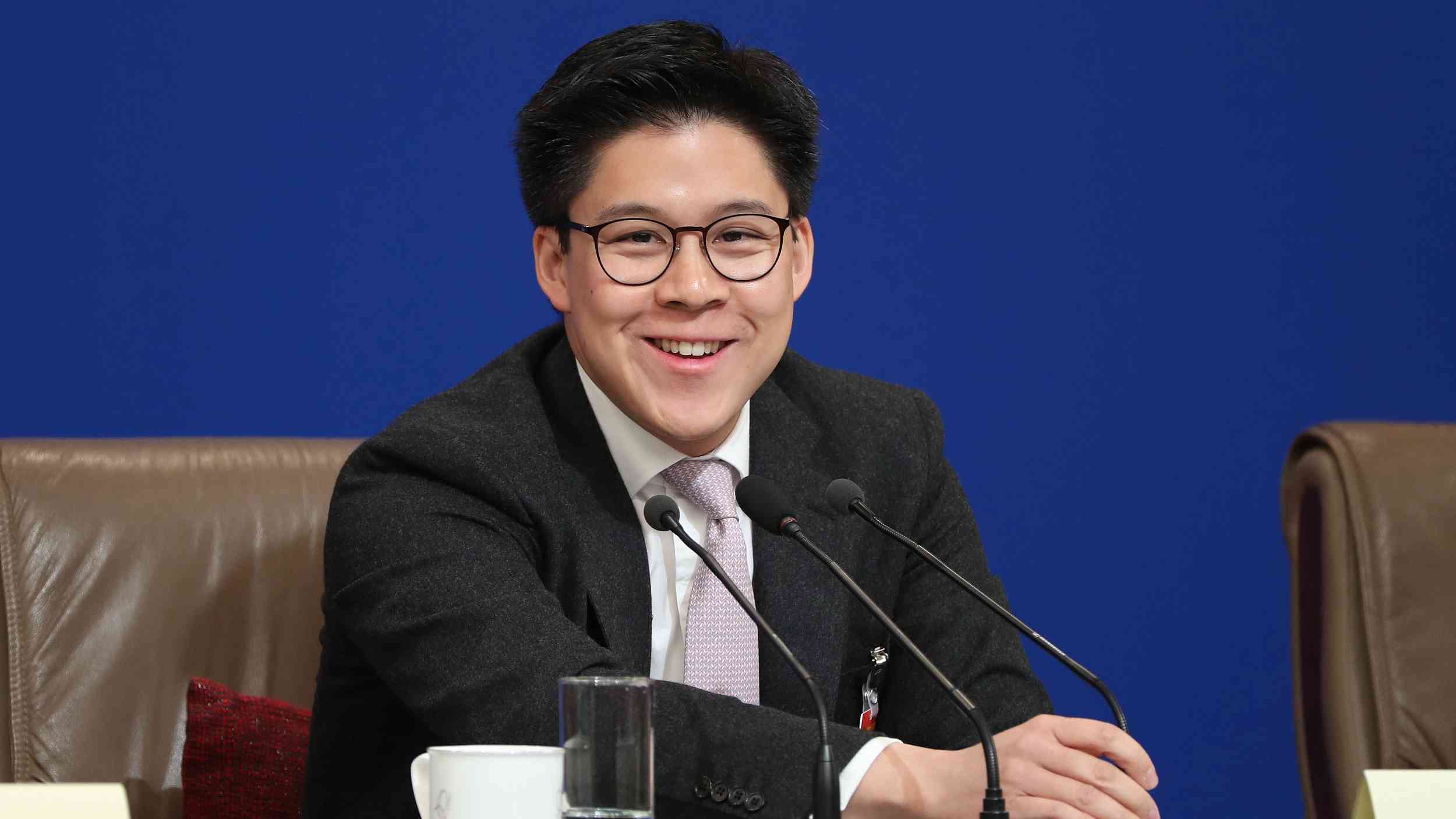
Biz Analysis
21:50, 12-Mar-2019
Exchange of talent key to building the Greater Bay Area: CPPCC member Kenneth Fok
Updated
22:40, 12-Mar-2019
Zou Yun
05:52

Hong Kong-born Kenneth Fok Kai-kong is a popular figure among China's young national political advisors. As a dedicated member of the Chinese People's Political Consultative Conference (CPPCC), this year he brings a proposal focusing again on the development of the Greater Bay Area, with emphasis on enhancing the cooperation mechanism for youth education.
The Greater Bay Area is a term used to describe Guangdong and the special administrative regions of Hong Kong and Macao.
"I think for any area like the Greater Bay Area, the key is really to invest in the future... you can talk about the different industries, different cooperation, but to me I think at the end of the day, it's really about the exchange of talent of people," said Fok.
Fok told CGTN that there have been various kinds of youth programs and internships underway, but few of them engage with schools; the majority of them focus on law practices, businesses, or high-tech companies. Under this context, he made a suggestion this year on developing two-system schools in the area, given the different education curricula between the mainland and Hong Kong.

CPPCC Member Kenneth Fok at the Second Session of the 13th CPPCC, March 10, 2019. /VCG photo
CPPCC Member Kenneth Fok at the Second Session of the 13th CPPCC, March 10, 2019. /VCG photo
"Because if we want to enable exchange or more people to go to the Greater Bay Area to develop themselves, we have to think about their kids' education. They don't know how long they are gonna stay in Shenzhen, or Guangzhou or Jiangmen. And one day their family may have to move to Hong Kong again, and then education is a big part. So (I wonder if) we can think outside the box, (and) have schools that can cater to both education systems."
Greater Bay Area plan will enhance the 'one country, two systems' principle
Since the Chinese government released this development plan for the Greater Bay Area, there have been some criticisms from the West that this initiative may harm the practice of "one country, two systems".
When asked about his take on this argument, Fok said he believes the "one country, two systems" principle will not be harmed, but only enhanced by the building of the Greater Bay Area. And it is the principle that gives Hong Kong the advantage to participate in and be one of the main driving forces in the development plan.
"I find no bases in this argument. I'm quite baffled when I heard about this so-called argument, saying that it would infringe on the 'one country, two systems' principle. I think the determination to uphold the 'one country, two systems' is stronger than ever."
"And if you look at the first page of the plan for the Greater Bay Area, it mentions multiple times that it is an enhancement, I would use the word enhancement, or new take, on the 'one country, two systems' principle. And that's exactly what we should focus on," said Fok.
This is Fok's second time at the annual session of the 13th National Committee. He told CGTN that compared with last year, the excitement remains, and he's making progress in understanding how to contribute in a more constructive way through self-learning, tours and research.

SITEMAP
Copyright © 2018 CGTN. Beijing ICP prepared NO.16065310-3
Copyright © 2018 CGTN. Beijing ICP prepared NO.16065310-3